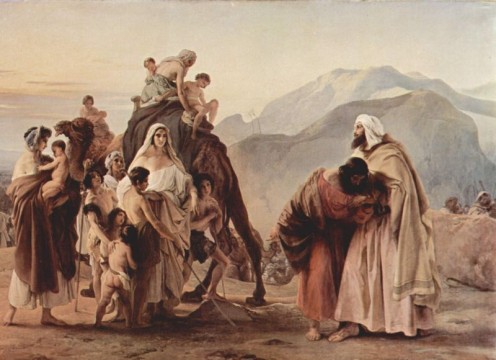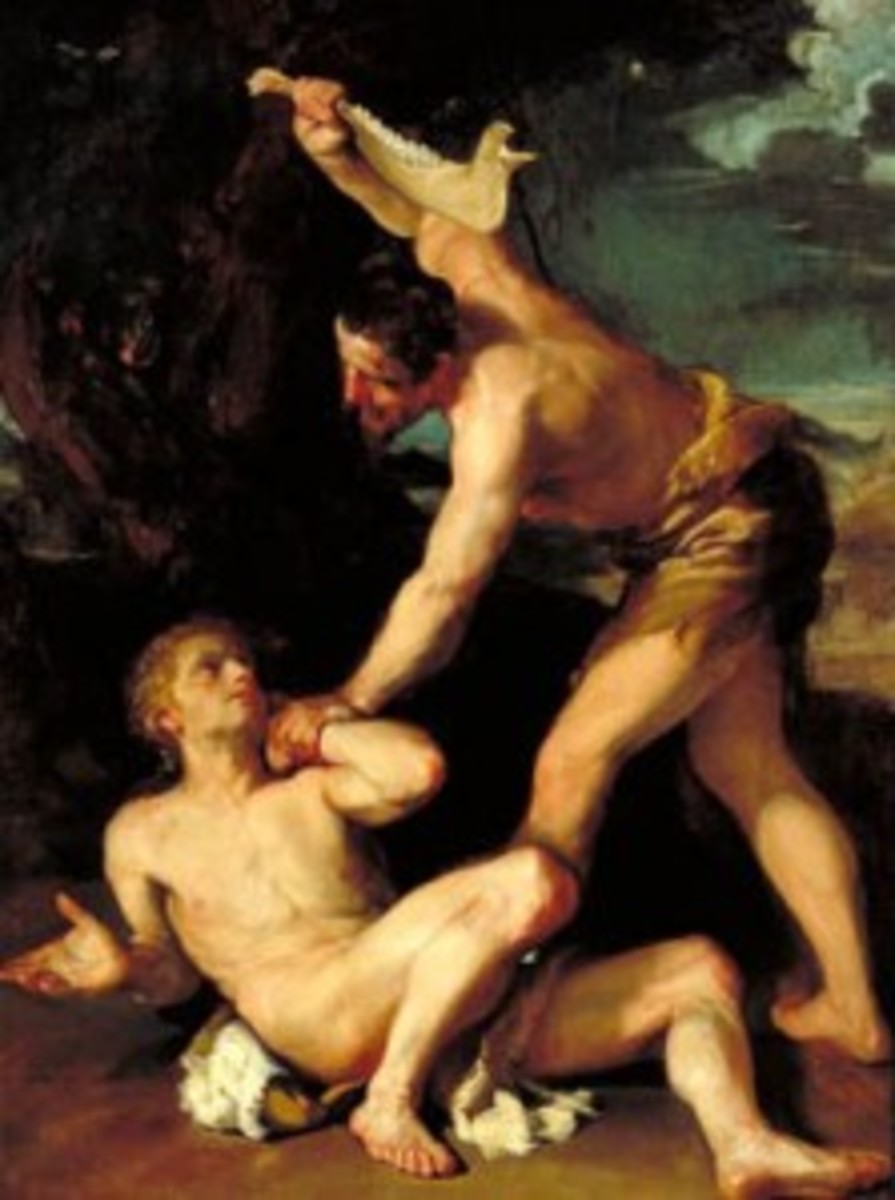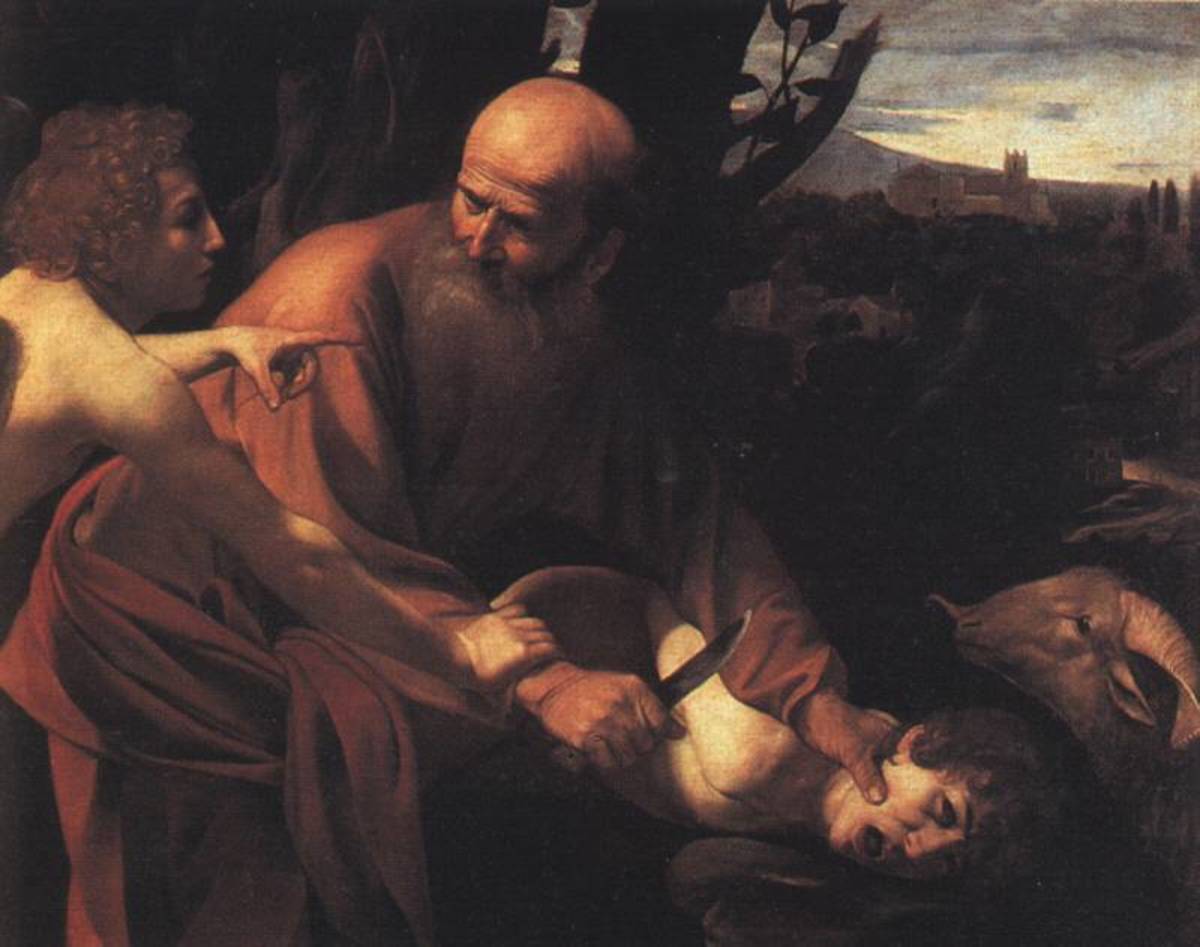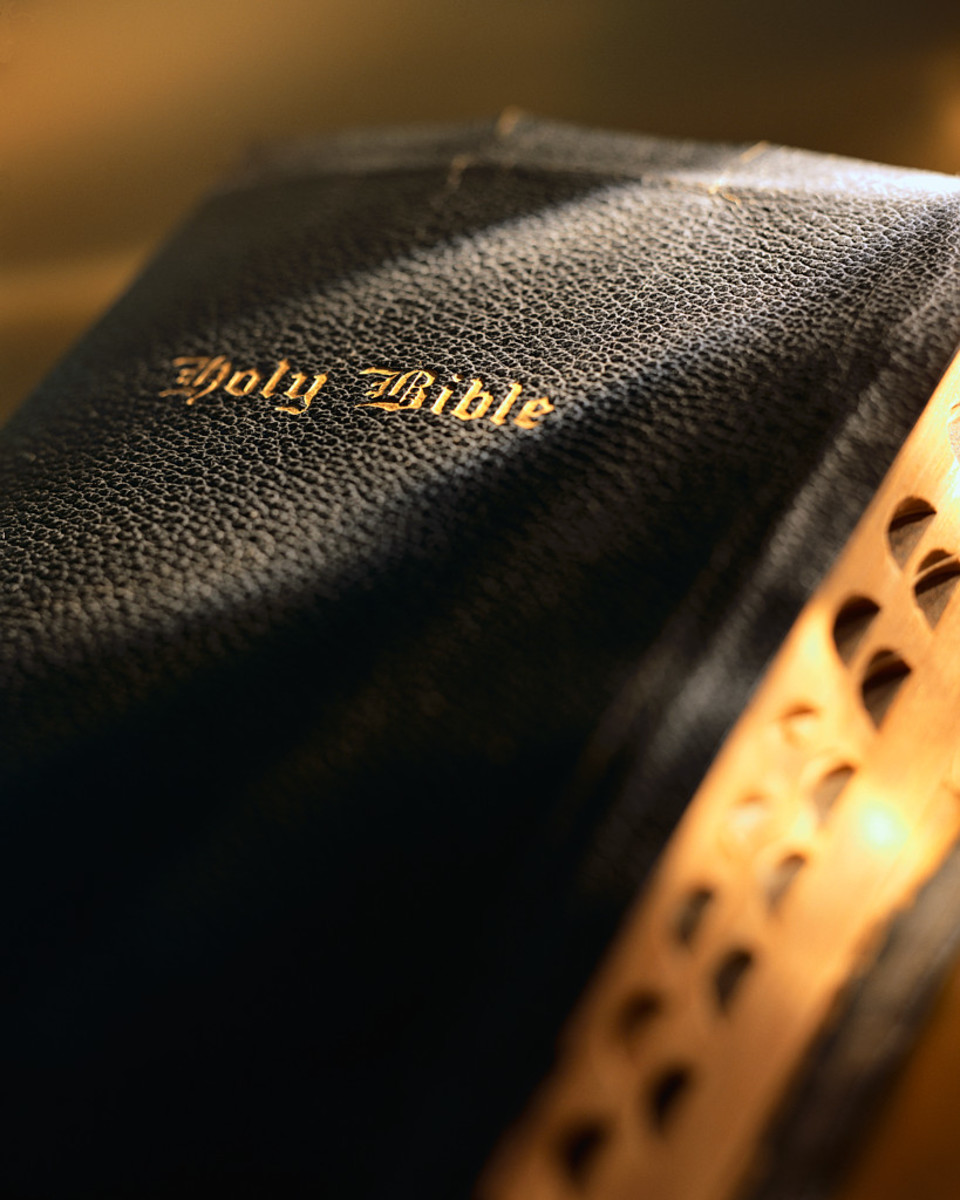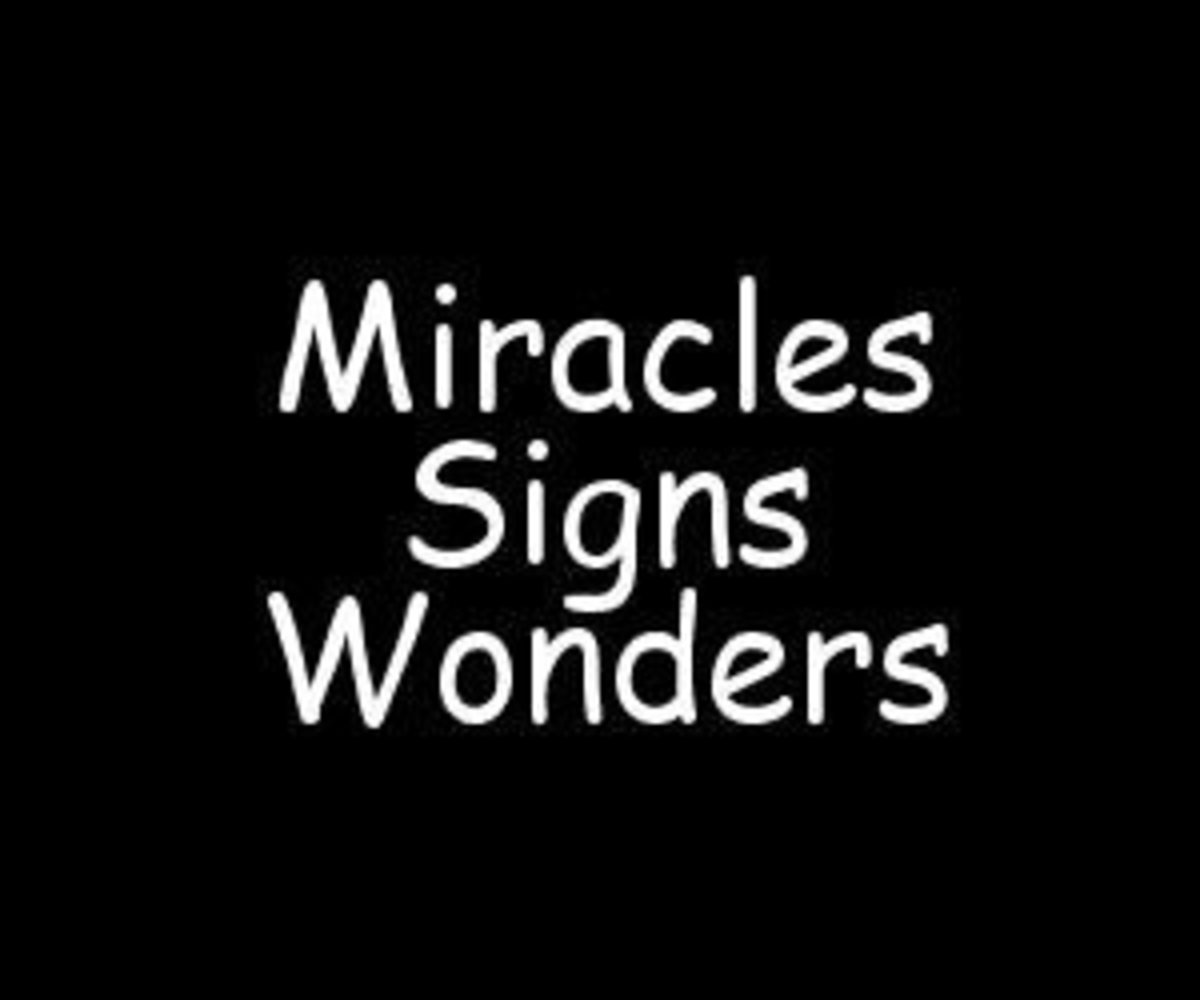Jacob Wrestles With A Man
The Three Patriarchs

Who are the "three Patriarchs"?
In the Old Testament, in the book of Genesis, we are taught the gospel through the examples of the lives of the prophets of old. One of those great prophets that we can learn many things from is the prophet Jacob. Jacob was the son of Isaac, who was the son of Abraham. These three are sometimes referred to as the "Three Patriarchs."
Overview of Jacob's Life
Before Jacob was born, Rebekah his mother, received confirmation that he would be the birthright heir to all of the blessings of his father Isaac, that of the prophetic calling. As he developed through his youth he grew in stature and grace, by obedience to the laws of the gospel. When it came time to receive his birthright blessing he was prepared in everyway to move further along that path of righteous living.
Following the reception of that blessing he was sent to find a wife from among the covenant line. In obedience to that command he went to the house of his mothers ancestors to choose a bride from among her people. As he traveled he had an experience which required him to make more covenants with the Lord, which is known as "Jacobs Ladder."
He served twenty years in service to his father-in-law, in which time he married two women, and acquired two concubines. From these four women he had eleven sons and one daughter. By making a working agreement with his father-in-law he also worked to acquire wealth by way of goods and livestock.
It is at this point in Jacob’s life that an angel of the Lord appeared to him and gave him these instructions:
The Angel's Instructions Are Given With Authority
It is interesting to note the manner in which the angel instructs Jacob to return to his father. First, he lets Jacob know who is giving the instructions, "I am the God of Beth-el" (this was the name of the place where the Jacobs Ladder incident occurred), this is to assure him that the one giving the instructions is trustworthy or true, and has the authority to make the promises sure. He then reminds him of the covenant he entered into when he started out on his journey.
Genesis 28:20-22
And Jacob vowed a vow, saying, If God will be with me, and will keep me in this way that I go, and will give me bread to eat, and raiment to put on,
So that I come again to my father's house in peace; then shall the Lord be my God: And this stone, which I have set for a pillar, shall be God's house: and of all that thou shalt give me I will surely give the tenth unto thee.
The Abrahamic Covenant's terms and conditions are set by God
It is here that Jacob enters into the Abrahamic Covenant (I will be your God, and you will be my people, walk with me) with the Lord, which covenant the Lord set, allowing those who enter into it to receive of the blessings of it.
Jacob then gives him a token or sign of the covenant by setting up the pillar "for God's house", and makes an offering, to bind or seal his commitment, by giving of "the tenth unto thee." The tenth is more commonly referred to as tithes and offerings.
Obedience to the law, binds the Lord to bestow the attached blessing.
As we have come to understand God and law in the way that Jacob must have come to understand it, we know that Jacob is reminded of the covenant so that he has the ability to move forward in faith, nothing wavering. This commitment is only possible because he understands that his obedience to the law, or terms of the covenant, allows him to call upon the blessings attached to that law.
Compare this with the instruction in James 1:6-8
Fear is the opposite of faith.
Jacob embarks on this journey fairly tentative about the reception that he might be faced with as he is reunited with his brother Esau. As he nears his homeland he decides to send messengers ahead with gifts, or offerings, to find favor in the sight of his brother.
It is when these messengers return with the news that Esau approaches with 400 men that the wrestle inside of Jacob actually begins. We learn about the process from the description given in the scriptures: Then Jacob was greatly afraid and distressed: and he divided the people that was with him, and the flocks, and herds, and the camels, into two bands;
The Wrestle With The Natural Man
Jacob has become a "double minded" man. His faith is being tried by the "natural man" inside him who allows him to become "afraid", so much so, that he divides his people into two bands. A struggle has begun. At this point he desires to have the Lord bless him but because of fear, he temporarily forgets the principles of law, in that blessings are only predicated upon obedience to covenants.
We are shown at this point he starts to rely on his own strength, not on the strength that obedience brings. A plan of division is the only way "the natural man" can think of to save at least part of his family, fearing that an attack by Esau would leave him with nothing. Total reliance on the Lord however, would save his entire family because of the covenant. He makes an offering to Esau of "part" of his goodly wealth, by way of gifts going before him, relying on his own merits. He even instructs his servants to tell his brother, "he is behind us", mere men, in contrast to him being behind the Lord.
Jacob Praying

Seeing God Face To Face
That night, as Jacob sleeps in his camp, we can see evidence of the beginning of the process of a "change of heart" when we are told "he rose up." Rising up is a condition of going from one point to another of a higher plain. A state of confusion, to remembrance, of covenants made and blessings promised.
With renewed strength he takes the family he is with and combines them with the family that was separated from him, making them united. This might also be symbolic of the place where Jacobs own heart is, divided desiring to becoming united. Jacob then faces this battle of self alone.
It is here we are told of the wrestle he has with "a man." This is not just any man, this man is himself, and the part of him that is the "natural man" now enters into the wrestle against the part of him that is the "spiritual man." It is here he attempts to become reconciled with himself and ultimately with Christ.
This physical struggle lasts the whole night, and just at the point where Jacob is in the darkest part, comes the "breaking of the day." Enduring through the trials of life, allowing victory over self, he receives the blessing contingent on the commandment to be "of one heart and of one mind", that of "seeing God face to face."
Key: Knowing Who You Are
A key to overcoming self is given with the question, "What is thy name?" By knowing his name he shows he knows who he is, Jacob. Because of this knowledge of "who" he is, he knows the blessings that are his. We too must remember who we are and the blessings that go with that.
A New Name
He is then given a "new name" representing the conversion of the old "natural man" to the sanctified or "new" spiritual man. He is given the explanation that "as a prince" or in other words, a son of God (who is king of kings) he has used his power (or priesthood, meaning the power to act in Gods name), and prevailed over self.
Application Of The Atonement
Moses (who is the author of this account) then teaches us in the language of symbolism, that Jacob relies now not on the flesh of his own "thigh", but on the merits of the Savior, relying on the effects of the atonement in his life. Moses describes the atonement for us by using the terms "as he passed over" Penuel "the sun rose", thus in terms that would be familiar to Moses, he tells us of the death (pass over) and resurrection (sun rose) of Jesus.
Consecrating All is the requirement of being in the presence of the Lord.
We are given further evidence of Jacobs's total conversion, by the offering he now gives.
As he lifted up his eyes and saw Esau had arrived, he not only offered himself as an offering to his brother but he offered his entire family as well. He consecrated all that he had as an offering, thus fulfilling the terms of the covenant that he made with the Lord, by way of "the tenth."
Jacob Offering All That He Had
